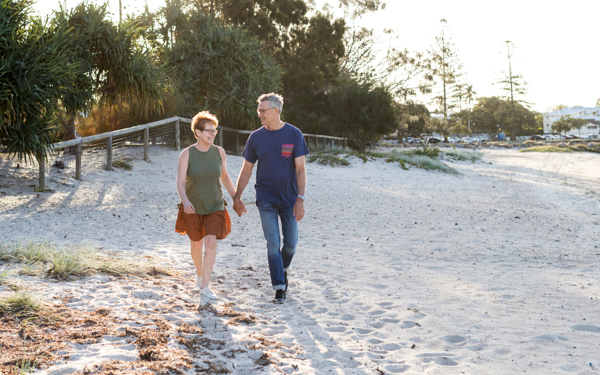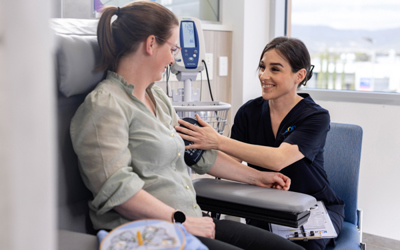Why does chemotherapy cause hair loss?
Hair loss is a common worry for people considering chemotherapy.
Chemotherapy drugs are designed to destroy cancer cells. However, they can also kill healthy cells, such as the cells that make your hair grow.
Prevention of hair loss and scalp cooling
One method that can help reduce hair loss whilst undergoing cancer treatment is by using a cooling cap. The cooling cap is worn on the head and a cooling liquid is run through the cap to help reduce the blood flow and therefore cancer drugs to the hair follicles.
The cooling cap also acts to reduce the action of the hair follicle, therefore making it less appealing to the chemotherapy drugs, which seek out cells that divide quickly. This helps protect the hair follicles and hair loss. For the cooling cap to be as effective as it can be, it should be worn before, as well as during and a period of time after the chemotherapy treatment.
Radiation therapy and hair loss
Radiation therapy can result in hair loss and thinning, but usually only to the area of body in which radiation is being targeted.
The amount and scheduling of radiation treatment will have an effect on hair loss.
Moderate doses of radiation usually result in hair regrowth in a few months after treatment, whilst higher doses of radiation may result in permanent hair loss.
Hair loss usually starts a few weeks after treatment begins.
Tips for managing hair loss
There are numerous options you can try to help manage your hair loss while undergoing treatment which include:
Reduce the temperature of your showers to lukewarm, as hot water can be hard on your scalp
Reduce the number of times you wash your hair each week
Avoid using your hair dryer on a high heat
Brush your hair very gently, with a wide-tooth comb/brush to prevent tangles and accidental pulling of your hair
Talk to your healthcare team or hairdresser about hair dye options, and avoid all permanent and semi-permanent dyes
During cooler weather and sunny days, ensure your head is covered to protect it from the elements
If you are considering a wig or hair piece, consider one from a shop that specialises in wigs for cancer patients so as not to get one that is too heavy, or pulls on your hair
Having a hair style that involves the hair being relatively short can make your hair look fuller
Frequently asked questions
References
The content on the Icon Cancer Centre website is for informational purposes only and should not be considered medical advice. It is not a substitute for consultation with a qualified medical practitioner. For personalised medical guidance, please consult with your GP or another qualified healthcare provider.






